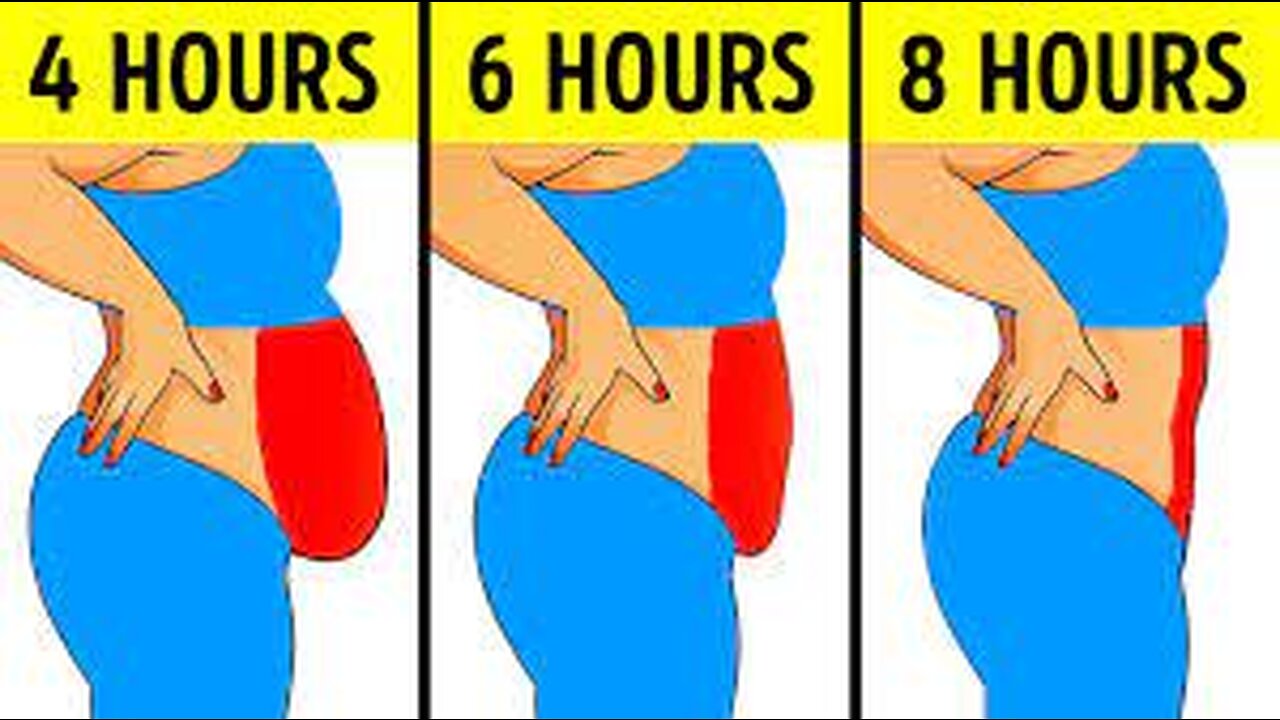Premium Only Content

How To Lose Weight Fast with Dr. Ken Fujioka | Ask the Expert
Losing weight early, or losing weight quickly, can be achieved through a combination of diet, exercise, and lifestyle changes. However, it's important to note that rapid weight loss is not always sustainable or healthy in the long term. It's generally recommended to aim for a gradual and sustainable rate of weight loss, which is typically 1-2 pounds (0.45-0.9 kilograms) per week. Rapid weight loss can lead to muscle loss, nutrient deficiencies, and other health issues.
Here are some tips to help you get started on your weight loss journey:
Consult a healthcare professional: Before beginning any weight loss program, it's a good idea to consult with a healthcare provider or a registered dietitian. They can assess your individual needs and provide personalized guidance.
Set realistic goals: Determine how much weight you want to lose and set achievable, short-term and long-term goals. Remember that losing weight early doesn't necessarily mean losing a large amount of weight quickly; it's more about starting your journey promptly.
Create a calorie deficit: To lose weight, you need to consume fewer calories than you burn. You can do this by either reducing your calorie intake or increasing your physical activity. A combination of both is often the most effective approach.
Adopt a balanced diet: Focus on eating whole, nutrient-dense foods such as fruits, vegetables, lean proteins, whole grains, and healthy fats. Avoid or limit foods high in added sugars, saturated fats, and processed ingredients.
Portion control: Be mindful of portion sizes to prevent overeating. Use smaller plates, measure your food, and pay attention to hunger cues.
Regular exercise: Incorporate both cardiovascular exercise (like walking, jogging, or cycling) and strength training (using weights or resistance bands) into your routine. Aim for at least 150 minutes of moderate-intensity aerobic activity per week, as recommended by health guidelines.
Stay hydrated: Drink plenty of water throughout the day, as thirst can sometimes be mistaken for hunger.
Get enough sleep: Aim for 7-9 hours of quality sleep per night. Poor sleep can disrupt hormones that regulate appetite and lead to weight gain.
Manage stress: High stress levels can contribute to overeating and weight gain. Practice stress-reduction techniques such as meditation, yoga, or deep breathing exercises.
Track your progress: Keep a food diary, log your workouts, or use a smartphone app to help you monitor your daily calorie intake and physical activity. Tracking can help you stay accountable and make necessary adjustments.
Be patient and persistent: Weight loss takes time, and there will be ups and downs along the way. Stay committed to your goals and be patient with yourself.
Remember that weight loss is a personal journey, and what works for one person may not work for another. It's important to find a sustainable and healthy approach that fits your lifestyle and preferences. Additionally, if you have any underlying health conditions, consult with a healthcare professional for guidance tailored to your specific needs.
-
 LIVE
LIVE
Lofi Girl
2 years agoSynthwave Radio 🌌 - beats to chill/game to
222 watching -
 2:14:18
2:14:18
The Pascal Show
11 hours ago $0.04 earnedTHEY LIED TO POLICE AGAIN? Jake & Rebecca Haro Have Lost Their Minds! Emmanuel Haro Search Continues
1.66K -
 1:25:52
1:25:52
TruthStream with Joe and Scott
2 days agoSG Sits Down w/ LT From "And We Know": An 80K FT View of Humanity's Great Awakening from 8/22/2025
10.1K16 -
 15:54
15:54
Lacey Mae ASMR
10 hours agoASMR For Sleep in 15 Minutes!
353 -
 3:16:38
3:16:38
Price of Reason
10 hours agoTrump FIRES Fed Governor Lisa Cook! Cracker Barrel CRISIS Continues! James Gunn DCU Woes! Gamescon!
93.5K7 -
 2:25:01
2:25:01
FreshandFit
5 hours agoTyreek Hill Pays Ex Wife $1 Million in Ongoing Fees From Divorce?!
26.1K3 -
 2:03:46
2:03:46
Inverted World Live
7 hours agoHaunted Dolls Hack Amazon Alexa | Ep. 98
98.9K2 -
 3:09:53
3:09:53
Laura Loomer
7 hours agoEP140: Loomer EXPOSES Islamification At US State Department
29.8K12 -
 3:05:00
3:05:00
TimcastIRL
7 hours agoTrump Floats Accepting 600,000 Chinese Student Visas, MAGA Uproar | Timcast IRL
203K140 -
 8:44:47
8:44:47
SpartakusLIVE
12 hours ago$20,000 Hide and Seek Tourney w/ Stonemountain64 || #1 Rat wins the BIG CHEESE
66.5K